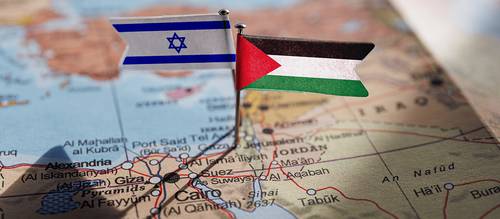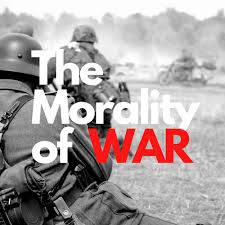Disclaimer: I want to clarify that I'm not a history major. This article attempts to shed some light on the importance of history and how it affects us, thereby forming a rational grounding on its need. With that out of the way, the following questions are ones I've tried to reason within this article:
1. How does history affect us—personally and globally?
2. Doesn't history carry with it a proclivity to divide us?
If we had to use one word to crudely understand what history tells us, the most appropriate word would be 'Identity'. History helps us appreciate where we came from and what our roots are. In other words, it provides context to our perception of contemporary life and nations. Now, we may ask the question, why does identity matter? Individually, we may abandon our identity and detach ourselves from the community. However, our identity won't leave us; from an outsider perspective, you are a member of a particular community, caste, or religion.
The most contested playground for politics is history. Political parties appeal to particular communities based on their identity or history and form reliable vote banks. History provides context to identity, and politics ride on identity. As a commoner, our identity and history play vital roles in the issues of caste, reservation, and religion that shape our contemporary lives and decisions. So, it is impossible to overlook history if we wish to understand the structure of these issues, let alone have an opinion about it.
Without identity or history, we are rootless, deracinated, and hence we're vulnerable to being swayed by false narratives. An opinion that is held by many is that India was a victim of constant invasions and couldn't take an opposing stand for the longest time. Therefore, we think that we as a nation are weak. On the contrary, this is false and a completely ignorant and uninformed opinion by the mere fact that we are the only ancient society that survived the multitudes of invasions, colonisations, and conversions. So, by not choosing to read history, we offer room for easy manipulation by European or Western ideas and narratives, as we do not have an objective understanding of who we are. For example, a Swedish report recently asserted that "India is a flawed democracy". Sadly, by merely reading the title, we tend to instantly agree to it, which again stems from our lack of a factual base of our national history. When we see laws like CAA, NRC and the Farm Laws, we are sometimes ignorant of the history behind those laws and base our opinions on merely forwarded messages or 5-minute videos on the internet.
Therefore, ignorance of history renders us handicapped when spotting out false narratives.
Personally, history lets us look at ourselves in a way that we would never be able to in our lifetime. For example, the fact that we could have been Nazi soldiers and committed horrifying crimes if we were born in Germany during Hitler's era is extremely overwhelming. History is not necessarily about someone else: it is about us, situated in diverse scenarios. Therefore, it lets us explore the darker parts of humanity by providing us with the ability to walk in the shoes of whoever we want and learn whatever we wish to from their lives. That's like a superpower granted to us for free! It also gives us a grasp of how nations came into being, what shaped our culture, and therefore allows us to have a collective vision of both the present and the future.
Now to address the second question; "Doesn't history carry with it a proclivity to divide us?"
Bluntly, the answer is yes. But the devil is in the details. History is assumed to cause division based on the premise that discussing caste, reservation, or religion carries the risk of offending people, so not talking about it preserves the status quo. But, on the other hand, turning a blind eye to the facts offers time and space for someone else to form a false narrative that deepens the division unpredictably. Hence, it is far better to discuss, debate, and thrash out the truth to find common ground instead of brushing these issues under the carpet for the time being. Doing so may show us how we can build a harmonious future. The idea that we must abandon our identities and collectively identify ourselves as Indians is an ideal that will not come to fruition in a definite time.
Irrespective of our opinion, identity plays an irreplaceable role in national policies and decision making. Therefore, reading and understanding history helps us understand ourselves internally and puts us in the right frame to understand the context of the contemporary world.





